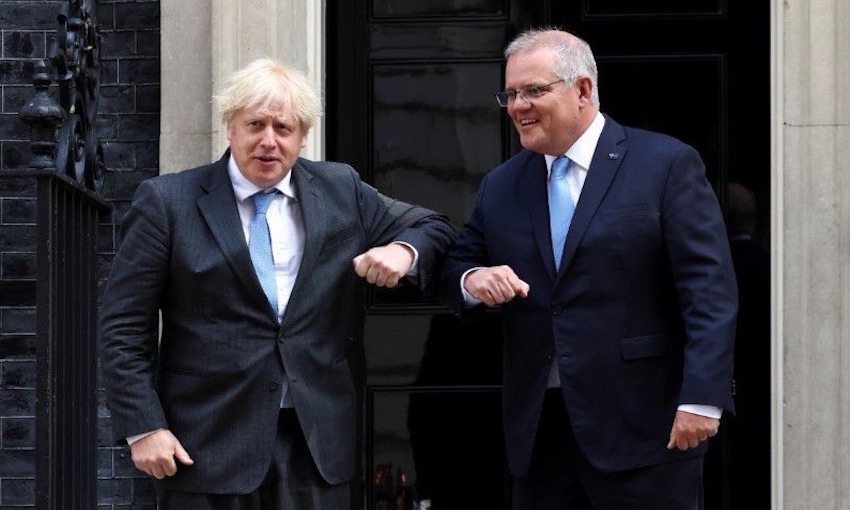THE PRIME Ministers of Australia and the United Kingdom have reached agreement on the broad outline of an Australia-UK Free Trade Agreement.
Scott Morrison and Boris Johnson have emphasised that this is the “right deal” for their respective nations, which they say will provide greater access to a range of high-quality products made in both countries as well as greater access for businesses and workers.
Industry will be keen to sight the details of the FTA, especially around items such as the requirements for proof of origin at the time of import (by way of self – certification or otherwise) and technical details such as cumulation and consignment rules which will affect the supply chain between Australia and the UK.
Mr Morrision said,“Australian producers and farmers will receive a significant boost by getting greater access to the UK market.
“Australian consumers will benefit from cheaper products, with all tariffs eliminated within five years, and tariffs on cars, whisky, and the UK’s other main exports eliminated immediately.”
The UK will liberalise Australian imports with 99% of Australian goods, including Australian wine and short and medium grain milled rice, entering the UK duty free when the agreement enters into force.
Beef tariffs will be eliminated after ten years. During the transition period, Australia will have immediate access to a duty-free quota of 35,000 tonnes, rising in equal instalments to 110,000 tonnes in year 10.
In the subsequent five years a safeguard will apply on beef imports exceeding a further volume threshold rising in equal instalments to 175,000 tonnes, levying a tariff safeguard duty of 20% for the rest of the calendar year.
Sheep meat tariffs will be eliminated after 10 years. During the transition period, Australia will have immediate access to a duty-free quota of 25,000 tonnes, rising in equal instalments to 75,000 tonnes in year 10. In the subsequent five years a safeguard will apply on sheep meat imports exceeding a further volume threshold rising in equal instalments to 125,000 tonnes, levying a tariff safeguard duty of 20% for the rest of the calendar year.
Sugar tariffs will be eliminated over eight years. During the transition period, Australia will have immediate access to a duty-free quota of 80,000 tonnes, rising by 20,000 tonnes each year.
Dairy tariffs will be eliminated over five years. During the transition period, Australia will have immediate access to a duty-free quota for cheese of 24,000 tonnes, rising in equal instalments to 48,000 tonnes in year five. Australia will also have immediate access to a duty-free quota for non-cheese dairy of 20,000 tonnes.
Working Holiday Visa makers in the UK will get expanded rights and will now be able to stay for three years with an increased cut off age of 35.
Professionals will benefit from provisions to support mutual recognition of qualifications and greater certainty for skilled professionals entering the UK labour market.
Trade law specialist Andrew Hudson said of the new FTA, “Of course, this only represents the bare essentials… we await details of the commercial and other benefits of the FTA.
“In accordance with other FTAs I am sure that both nations will have reserved their rights to full biosecurity protections and to impose trade remedies (dumping and countervailing measures) on exports from the other country.”
Many in the UK primary production industry have expressed concerns on being “swamped” by cheap Australian produce so the imposition of trade remedies and the administration of the various quotas will be watched carefully in the UK.
“Both nations have expressed their delight at the completion of FTA negotiations, although Australia was an obvious choice for an early deal with the UK,” Mr Hudson said.
“I am sure that a completed deal between the UK and New Zealand will be announced without undue delay.
“The FTA does confer additional trade and political benefits for the UK as it is the UK’s first FTA announced since Brexit which is not a “roll – over” of deals to which the UK was a party when it was part of the EU,” he said.
It will also assist the UK’s proposed accession to the Comprehensive and Progressive Agreement for Trans–Pacific Partnership.
“Commencement will take some time as the FTA still needs to go through legal ‘scrubbing’ to finalise the text, followed by domestic ratification by both countries and implementation,” Mr Hudson said.

